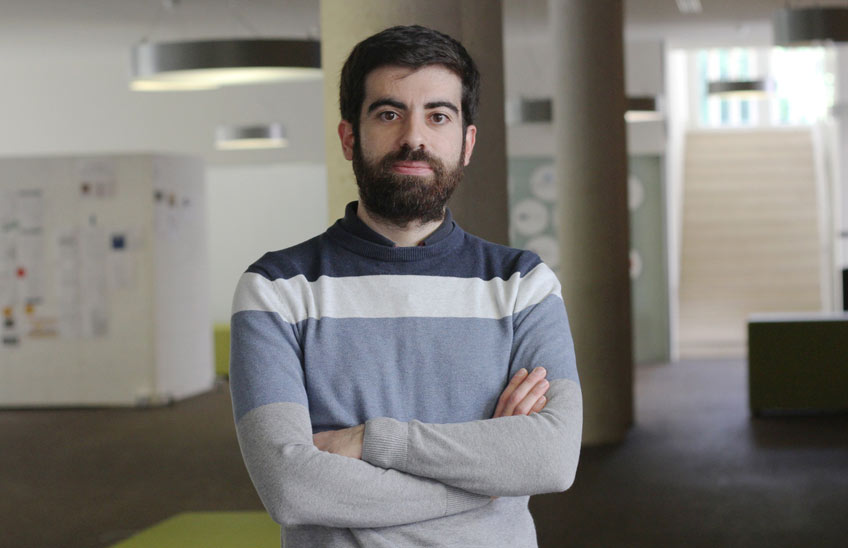"Explicit hate speech generates unanimous rejection; subtle hate speech is more dangerous because it can permeate society."
Dámaso Izquierdo, researcher Juan de la Cierva of the University of Navarra, will analyze the relationship between fake news and hate messages at an ICS symposium.

FotoIsabel Solana<br>/Dámaso Izquierdo, investigador del Instituto Cultura y Sociedad
26 | 05 | 2023
"Explicit hate speech, such as the insults to the Real Madrid player Vinicius, generate unanimous rejection in society. But there are also subtle messages, which are more dangerous because, being implicit, they have a greater capacity to reach even non-radicalized people". These are the words of Dámaso Izquierdo, researcher Juan de la Cierva of the University of Navarra, at the framework of a symposium that he is co-organizing at the Institute for Culture and Society (ICS) on June 6 and 7.
According to agreement , offensive words or disqualifications are not enough to unmask hate speech: "There are no specific linguistic elements that mark unequivocally when we are in front of them". Thus, he explains that it is necessary to "go case by case", which requires "a broader knowledge ", with the help of linguists who can assess it.
The symposium, co-financed by the European Commission, will have an interdisciplinary and international character. "It is a complex phenomenon and we want to share the solutions being provided by academics from fields such as communication, law, sociology, political science, linguistics...", he explains.
Other hate speech: ideological causes
For his part, the researcher of the ICS will present his research about how fake news and speech of hate feed back on each other: "There are communities in social networks that seek to stigmatize a particular social group and to do so, they intermingle both things".
Specifically, he will offer the findings of a case studied at the Europeanproject CoMMiTTEd, a fake news observatory for promote critical thinking and digital literacy in times of crisis. "It was a case of anti-Semitism that had a very factual style on Twitter. It singled out different relevant personalities in pharmaceuticals who had developed covid vaccines," he recounts.
According to the expert, a good part of the tweets analyzed were composed of fragments of real news published in the Jewish community media. "The decontextualization of these extracted parts and the new contextualization completely changed the meaning of what had originally appeared," he says. He adds that "the messages came from very radical anti-Semitic forums that sought to persuade society of the evil of Jews".
"It may be that speech of hatred based on xenophobia is one of the most visible thematic areas, although it is not the only one," he stresses. "There are others," he warns, "such as ideological causes in politics.
The symposium 'The speech of hate at the crossroads of aggression, anxiety and resonance' will take place at the ICS of the University of Navarra on June 6 and 7. It is organized by the group 'Public discourse', in the framework of the projects 'Verbal aggression in the face of freedom of expression in social networks', by Dámaso Izquierdo, and EMOFORTE, by Melike Akkaraca, Marie Curie researcher. Their goal is to address the relationships between aggressively exclusionary discourses and perceptions of insecurity accompanied by feelings of anxiety and alienation.
